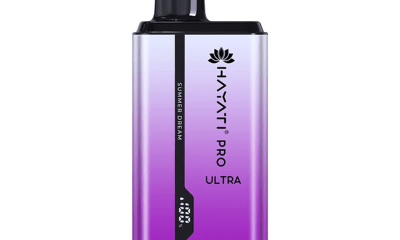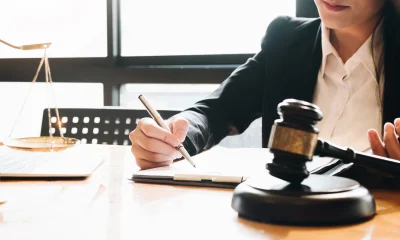Law
When Are Drug And Alcohol Tests Required By UK Courts?
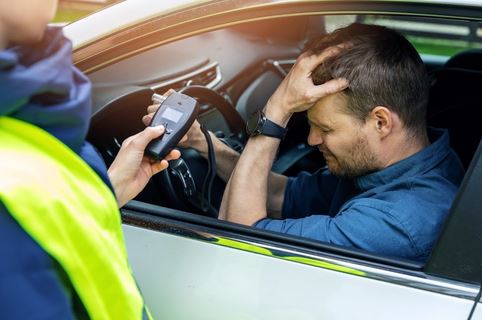
Drug and alcohol tests are conducted to diagnose addiction and provide treatment suggestions. These tests inquire into the substance used, the amount used, and the regularity of use to give a complete picture of the individual’s drug usage. These assessments provide a comprehensive view of the substance abuser’s life and level of substance misuse. Furthermore, it can help direct those in charge toward the most effective remedy.
This article will focus mainly on court-ordered drug and alcohol tests and when they are required. A court-ordered drug and alcohol test by Lextox is one that an individual is required to take to comply with a legal mandate that they abstain from drugs or alcohol. Divorce settlements, DUI (Driving under the Influence) or DWI (Driving while Intoxicated) arrests, probation, pretrial programs, and child custody orders are just some scenarios in which the law may mandate drug testing. Guidelines for drug and alcohol testing frequency are typically established by agreement or court order.
UK Courts: When Are Drug And Alcohol Tests Required?
In most cases, the law requires individuals to submit to a drug test to demonstrate that they are, or continue to be, drug-free. A court-ordered drug test may be necessary for child custody and drug use circumstances. If a salesperson suspects their client is using drugs, they may request a drug test as evidence. For a price, private individuals can also request drug tests to bolster their case in court. Thus, listed below are cases where drug and alcohol tests may be required by UK Courts:
- Test for DUI or Alcohol Use
Court-ordered drug or alcohol testing is a standard protocol following driving under the influence (DUI) or driving while intoxicated (DWI) arrests and convictions. In cases of DUI, for instance, the court may order an alcohol test. And the most common situations in which court-ordered alcohol and drug tests are: while intoxicated, possession of drugs or alcohol (may apply to minors), public intoxication, drug trafficking or distribution, manufacturing and/or distribution of controlled substances, and use of fake IDs for purchase or consumption.
- Case-Specific Drug Testing in Child Custody Disputes
In child custody situations, it is typical for one or both parties to request a court order to undergo a drug test to ensure the safety of the children involved. Test results are frequently used to confirm or refute an individual’s fitness as a parent in determining an initial custody arrangement or as part of a random drug testing program. A court may order a spouse to submit to a drug test, random drug testing over a specified time, or test before visitation rights are granted.
- Application for Probation or Pre-trial Proceedings
Probation officers frequently demand urine drug testing at random or under supervision. Urine testing can detect the presence of nearly all illicit substances. If abstaining from alcohol is a requirement of your probation, you should expect to be subjected to random alcohol testing during the duration of your probation.
The Different Types of Court-Ordered Drug And Alcohol Testing
Numerous types of legally-conducted drug testing produce admissible evidence in the judicial system. The specific substance being looked for and the required detection window will dictate the test that will be chosen, such as:
- Alcohol Detection Test
Blood tests for alcohol use often look for liver damage due to drinking. And aside from possible medical conditions, if the test results show considerable liver damage, it’s safe to assume that the person in question has been abusing alcohol for an extended period.
- Urine Test
Urine testing, sometimes known as urinalysis, can be used to satisfy a court-ordered drug test. In this procedure, the court orders a supervised urine analysis to detect the presence of illegal drugs.
The court may mandate random or periodic urine testing if drug abuse is pervasive and if reasonable suspicion exists that a person is abusing drugs.
- Hair Follicle Drug Test
A drug test on hair follicles can reveal a person’s history of drug use from the previous three months. If the person is using drugs, it is transmitted into the hair follicle, leaving some traces of drug usage in the hair shaft. A small sample of hair from the individual’s head is analyzed when doing a hair follicle test. This type of test can detect the use of a single drug or a combination of drugs.
How Are Samples Obtained In Court-Ordered Drug And Alcohol Tests?
“Chain of custody” refers to the protocol to be followed while collecting evidence for a legal proceeding, such as a drug test. The sample from the donor should be taken under close watch to prevent contamination or other forms of manipulation. Those who have to protect the integrity of the sample’s results should always keep it under lock and key.
The Conclusion
The court can require individuals under their jurisdiction to take a drug or alcohol test if they reasonably suspect they are using these substances.
A court-ordered drug or alcohol test is one that a person must undergo to fulfill a requirement that they remain drug-and alcohol-free. The law may require a drug test in the following cases: DWI/DUI arrest, probation or pretrial program, and child custody disputes. Agreements and court orders are the most common ways to set standards for how often someone should be tested for substance abuse.
Law
The Essential Guide to No-Fault Defense Lawyers: An In-Depth Look at Protecting Your Rights
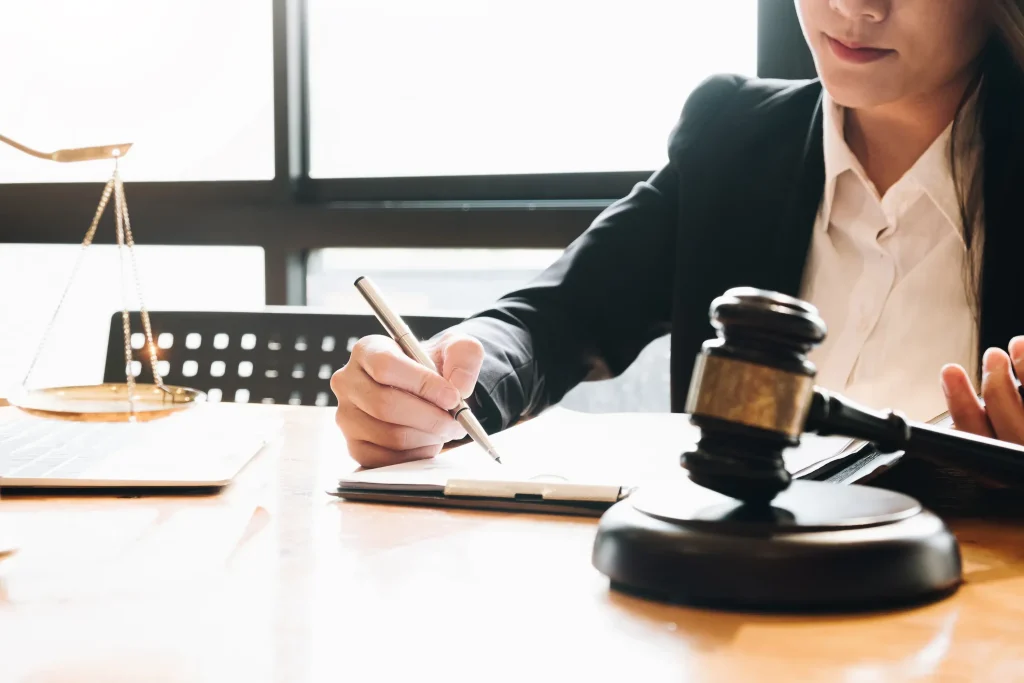

Key Takeaways:
- No-fault defense lawyers protect defendants against personal injury lawsuits in states with no-fault insurance laws.
- Hiring a no-fault defense lawyer is crucial to navigate the complexities of personal injury cases and minimize financial liability.
- No-fault defense lawyers conduct thorough investigations, collect evidence, and craft strategic defenses to minimize liability.
- When hiring a no-fault defense lawyer, consider their experience, track record of success, and costs and fees.
- To prepare for a no-fault defense case, gather evidence, understand the legal process, and work collaboratively with your lawyer.
- Communicate effectively with insurance companies, negotiate settlements, and consider alternative dispute resolution methods.
Understanding No-Fault Defense Lawyers
When it comes to legal matters, understanding the different types of lawyers and their specialties is crucial. In the realm of personal injury cases, particularly those involving automobile accidents, it becomes imperative to be familiar with the role of a no-fault defense lawyer. This guide aims to provide a comprehensive overview of what exactly no-fault defense entails and why you might need the services of such a lawyer.
What is No-Fault Defense?
No-fault defense, also referred to as a defense to a personal injury claim, is a legal strategy employed by defendants to protect themselves against personal injury lawsuits arising from auto accidents in states with no-fault insurance laws. In these states, drivers are required to carry no-fault insurance, which compensates policyholders for medical expenses, lost wages, and other related costs regardless of who was at fault for the accident. However, there are instances where injured parties can bypass the no-fault system and file a lawsuit against the at-fault driver. It is in these cases that a no-fault defense lawyer becomes essential to protect the rights of the defendant.
Why Do You Need a No-Fault Defense Lawyer?
Dealing with a personal injury lawsuit can be complex and overwhelming. Hiring a no-fault defense lawyer ensures that you have a legal expert by your side who specializes in this specific field. These lawyers possess a deep understanding of the no-fault insurance laws in your state, the intricacies of personal injury cases, and the strategies necessary to mount a solid defense against the claims made by the injured party. Without proper legal representation, you could find yourself facing significant financial liability and potential damage to your reputation.
The Role of a No-Fault Defense Lawyer
A no-fault defense lawyer plays a crucial role throughout the legal process. From the moment you enlist their services, they begin working diligently to build a strong defense on your behalf. This involves conducting thorough investigations, collecting evidence, interviewing witnesses, and consulting experts if necessary. They will analyze the circumstances surrounding the accident, evaluate medical records, review police reports, and assess the overall impact of the incident on your life. Armed with this information, they can craft a strategic defense aimed at minimizing your liability.
Key Considerations When Hiring a No-Fault Defense Lawyer
Choosing the right no-fault defense lawyer is paramount to the success of your case. Here are some key considerations to keep in mind when making this important decision:
Experience and Expertise
Look for a lawyer who specializes in personal injury defense and has extensive experience handling no-fault cases specifically. They should have a deep understanding of the complexities surrounding these types of claims and be up to date with the latest changes in the law. A lawyer with a proven track record in successfully defending clients in similar cases is an invaluable asset.
Track Record of Success
Review the attorney’s track record of success in handling no-fault defense cases. Determine their success rate in obtaining favorable outcomes for their clients and their ability to negotiate settlements when necessary. A lawyer who has a history of achieving positive results demonstrates their ability to effectively advocate for their clients.
Costs and Fees
Discuss the costs and fees associated with hiring a no-fault defense lawyer upfront. While cost should not be the sole determining factor, it is important to have a clear understanding of the financial aspects involved. Some lawyers may work on a contingency basis, where they only receive payment if they win the case, while others may charge a flat fee or hourly rate. Make sure to clarify the fee structure and any additional costs that may arise throughout the legal process.
Preparing for Your No-Fault Defense Case
Once you have hired a no-fault defense lawyer, it is essential to prepare thoroughly for your case. Here are some key steps to follow:
Gathering Evidence to Support Your Defense
Evidence plays a crucial role in any legal case, and your no-fault defense lawyer will guide you in collecting the necessary evidence to support your defense. This may include gathering medical records, photographs from the accident scene, witness statements, expert opinions, and any other relevant documentation. The stronger your evidence, the stronger your defense will be.
Understanding the No-Fault Defense Process
Take the time to familiarize yourself with the no-fault defense process. Your lawyer will explain the various stages of the legal proceedings, such as discovery, negotiations, and trial. It is important to have a clear understanding of what to expect so that you can actively participate in your defense and make informed decisions along the way.
Working Collaboratively with Your Lawyer
Establish a strong working relationship with your no-fault defense lawyer. Communication is key in navigating a complex legal matter, so make sure to provide your lawyer with all the necessary information and promptly respond to any requests they may have. Actively collaborate with them to develop a robust defense strategy and make sure you are informed about the progress of your case.
Tips for Protecting Your Rights in a No-Fault Defense Case
Being proactive in protecting your rights is crucial in any legal battle. Here are some tips to help you navigate your no-fault defense case:
Communicating Effectively with Insurance Companies
Engage in open and honest communication with your insurance company. Provide them with accurate and timely information regarding the accident and your defense strategy. Be cautious when speaking with the opposing party’s insurance company, as anything you say could potentially be used against you. It is advisable to consult with your no-fault defense lawyer before engaging in discussions with other insurance companies.
Negotiating Settlements in No-Fault Defense Cases
Explore the possibility of negotiating a settlement with the injured party. A skilled no-fault defense lawyer will assess the circumstances of your case and work towards reaching a fair settlement that protects your interests. Be open to considering settlement offers, but rely on the guidance of your lawyer to ensure that any agreement reached is in your best interest.
Alternative Dispute Resolution Methods
In some cases, alternative dispute resolution methods such as mediation or arbitration can be a viable option to resolve your no-fault defense case. These methods allow for a more collaborative approach, potentially leading to more expedient resolutions. Consult with your lawyer to determine if alternative dispute resolution may be suitable for your case.
By following these tips and working closely with your no-fault defense lawyer, you can navigate the complexities of your case while effectively protecting your rights.
Conclusion:
No-fault defense lawyers play a crucial role in protecting your rights and minimizing your liability in personal injury cases. Understanding the role of these lawyers, along with key considerations when hiring one, is essential for a successful defense. By adequately preparing for your case and actively participating in your defense, you can increase your chances of obtaining a favorable outcome. Remember to proactively protect your rights by communicating effectively and exploring alternative dispute resolution options when appropriate. With the guidance of a skilled no-fault defense lawyer, you can navigate the legal process with confidence and protect your interests every step of the way.
FAQ
Question: What is No-Fault Defense? – No-fault defense, also referred to as a defense to a personal injury claim, is a legal strategy employed by defendants to protect themselves against personal injury lawsuits arising from auto accidents in states with no-fault insurance laws.
Question: Why Do You Need a No-Fault Defense Lawyer? – Dealing with a personal injury lawsuit can be complex and overwhelming. Hiring a no-fault defense lawyer ensures that you have a legal expert by your side who specializes in this specific field. These lawyers possess a deep understanding of the no-fault insurance laws in your state, the intricacies of personal injury cases, and the strategies necessary to mount a solid defense against the claims made by the injured party. Without proper legal representation, you could find yourself facing significant financial liability and potential damage to your reputation.
Question: What is the Role of a No-Fault Defense Lawyer? – A no-fault defense lawyer plays a crucial role throughout the legal process. From the moment you enlist their services, they begin working diligently to build a strong defense on your behalf. This involves conducting thorough investigations, collecting evidence, interviewing witnesses, and consulting experts if necessary. They will analyze the circumstances surrounding the accident, evaluate medical records, review police reports, and assess the overall impact of the incident on your life. Armed with this information, they can craft a strategic defense aimed at minimizing your liability.
Question: What Key Considerations Should be Made When Hiring a No-Fault Defense Lawyer? – When hiring a no-fault defense lawyer, it is important to consider their experience and expertise in handling personal injury defense cases, specifically those related to no-fault claims. A proven track record of success in obtaining favorable outcomes and negotiating settlements is also important. Additionally, discussing and clarifying the costs and fees associated with hiring the lawyer should be done upfront.
Question: How Can I Prepare for My No-Fault Defense Case? – To prepare for your no-fault defense case, gather evidence to support your defense, understand the no-fault defense process, and work collaboratively with your lawyer. This includes collecting medical records, photographs, witness statements, and any other relevant documentation. Familiarize yourself with the various stages of the legal proceedings and actively participate in your defense by providing necessary information and collaborating with your lawyer.
Question: How Can I Protect My Rights in a No-Fault Defense Case? – To protect your rights in a no-fault defense case, communicate effectively with insurance companies by providing accurate information and consulting with your lawyer before engaging in discussions with the opposing party’s insurance company. Consider negotiating settlements with the injured party and explore alternative dispute resolution methods such as mediation or arbitration.
Question: What is Alternative Dispute Resolution? – Alternative dispute resolution refers to methods such as mediation or arbitration that can be used as alternatives to traditional litigation to resolve legal disputes. These methods often offer a more collaborative approach and can lead to more expedient resolutions.
Question: How Can I Increase my Chances of Obtaining a Favorable Outcome in my No-Fault Defense Case? – By following the tips provided, such as adequately preparing for your case, actively participating in your defense, effectively communicating with insurance companies, considering settlement offers, and exploring alternative dispute resolution options, you can increase your chances of obtaining a favorable outcome in your no-fault defense case.
Useful Resources:
- American Bar Association
- law.com
- Justia
- LexisNexis
- Avvo
- Nolo
- FindLaw
- Cornell Law School Legal Information Institute
Law
Importance of Hiring a New York City Car Accident Lawyer
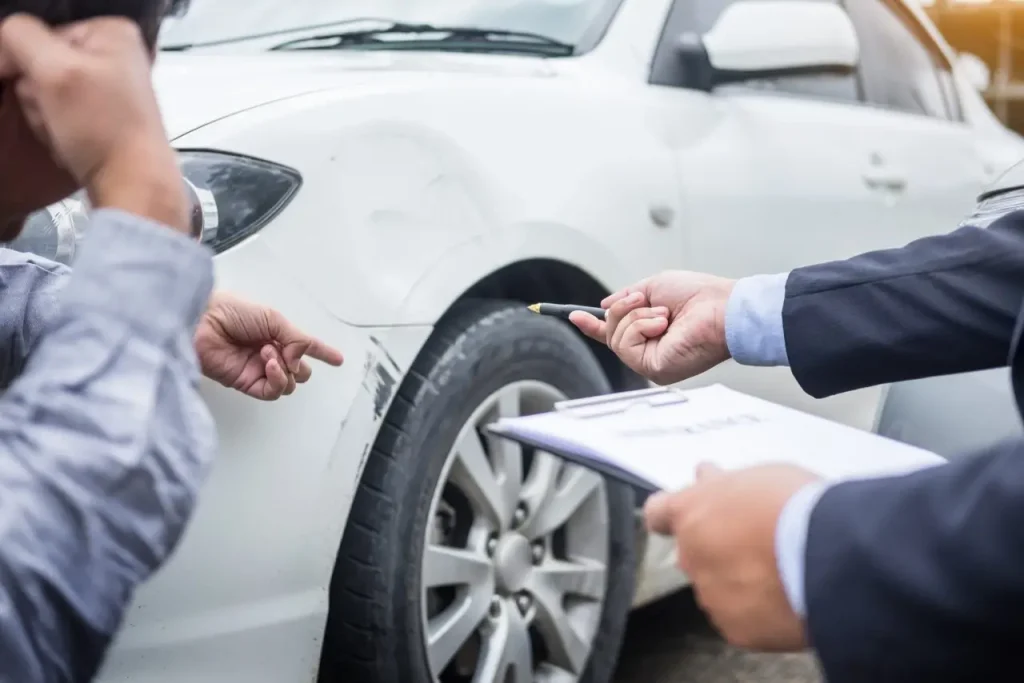

Car accidents are a common occurrence in New York City, often resulting in serious injuries and significant financial losses. In such challenging times, having a reliable legal representative can make a world of difference. Gregory Spektor & Associates P.C. is a leading law firm in NYC, specializing in car accident cases. Their expertise and dedication to clients make them a top choice for anyone in need of legal assistance after a car accident.
Understanding Car Accidents in New York City
New York City’s bustling streets and heavy traffic contribute to a high number of car accidents each year. Factors such as distracted driving, speeding, and reckless behavior often lead to these accidents. Injuries from car accidents can range from minor bruises to life-altering conditions, impacting victims physically, emotionally, and financially.
The Role of a Car Accident Lawyer
A car accident lawyer plays a crucial role in helping accident victims navigate the complex legal process. They provide invaluable support by:
Investigating the Accident: Lawyers gather evidence, such as police reports, witness statements, and medical records, to determine liability.
Determining Liability: They analyze the evidence to establish who is at fault for the accident, which is essential for seeking compensation.
Negotiating with Insurance Companies: Lawyers communicate with insurance companies on behalf of their clients to secure fair compensation for injuries and damages.
Litigation: If a settlement cannot be reached, lawyers are prepared to take the case to court and represent their clients in legal proceedings.
Why Choose Gregory Spektor & Associates P.C.?
Gregory Spektor & Associates P.C. stands out among other law firms due to their unwavering commitment to their clients’ well-being. Here are some reasons why they are the go-to choice for car accident victims in NYC:
Experience: With years of experience in handling car accident cases, Gregory Spektor & Associates P.C. has a deep understanding of New York’s laws and legal procedures.
Dedication: The firm is dedicated to providing personalized attention to each client, ensuring that their unique needs are met throughout the legal process.
Track Record: Gregory Spektor & Associates P.C. has a proven track record of success in obtaining favorable outcomes for their clients, securing the compensation they deserve.
Resources: The firm has access to a wide range of resources, including expert witnesses and accident reconstruction specialists, to strengthen their clients’ cases.
Seeking Compensation for Car Accident Damages
Victims of car accidents may be entitled to various types of compensation, including:
Medical Expenses: Compensation for current and future medical bills related to the accident, including hospital stays, surgeries, and rehabilitation.
Lost Wages: Reimbursement for income lost due to the inability to work following the accident.
Pain and Suffering: Compensation for physical pain, emotional distress, and mental anguish caused by the accident.
Property Damage: Reimbursement for the repair or replacement of damaged vehicles or other property.
Wrongful Death: Compensation for the family members of a victim who died as a result of the accident.
The Legal Process
After hiring Gregory Spektor & Associates P.C., clients can expect a thorough and efficient legal process:
Initial Consultation: Clients meet with the firm to discuss the details of the accident and their legal options.
Investigation: The firm conducts a comprehensive investigation to gather evidence and establish liability.
Negotiation: Lawyers negotiate with insurance companies to secure a fair settlement for their clients.
Litigation: If a settlement cannot be reached, the case may proceed to court, where Gregory Spektor & Associates P.C. will represent their clients in front of a judge and jury.
Types of Car Accidents in New York City
New York City, with its bustling streets and heavy traffic, is no stranger to car accidents. From fender benders to multi-vehicle collisions, the city sees a variety of accidents every day. Understanding the types of car accidents that occur in NYC can help drivers stay vigilant and possibly avoid them. Here are some common types of car accidents in New York City:
- Rear-End Collisions
Rear-end collisions are among the most common types of accidents in NYC. These occur when one vehicle hits the rear of another vehicle. They can happen at intersections, in stop-and-go traffic, or when one driver is following too closely behind another.
- T-bone Accidents
T-bone accidents, also known as side-impact collisions, occur when the front of one vehicle crashes into the side of another vehicle, forming a “T” shape. These accidents often happen at intersections when one driver fails to yield or runs a red light.
- Pedestrian Accidents
Given the high population density in NYC, pedestrian accidents are unfortunately common. These occur when a vehicle strikes a pedestrian, often at crosswalks or while crossing the street. Distracted driving and failure to yield to pedestrians are common causes.
- Sideswipe Collisions
Sideswipe collisions happen when the sides of two parallel vehicles make contact with each other. These accidents often occur when changing lanes or merging into traffic without checking blind spots.
- Single-Vehicle Accidents
Single-vehicle accidents involve only one vehicle and can result from various factors such as losing control, hitting an object on the road, or experiencing a mechanical failure. These accidents can be particularly dangerous, especially at high speeds.
Conclusion
Navigating the aftermath of a car accident can be overwhelming, but having a trusted legal ally can make all the difference. Gregory Spektor & Associates P.C. is dedicated to helping car accident victims in New York City seek justice and fair compensation. With their expertise and commitment, they stand ready to assist those in need during their time of recovery and beyond.
Law
What Does The 3-Day Wait Period To Buy Guns Mean In CO?
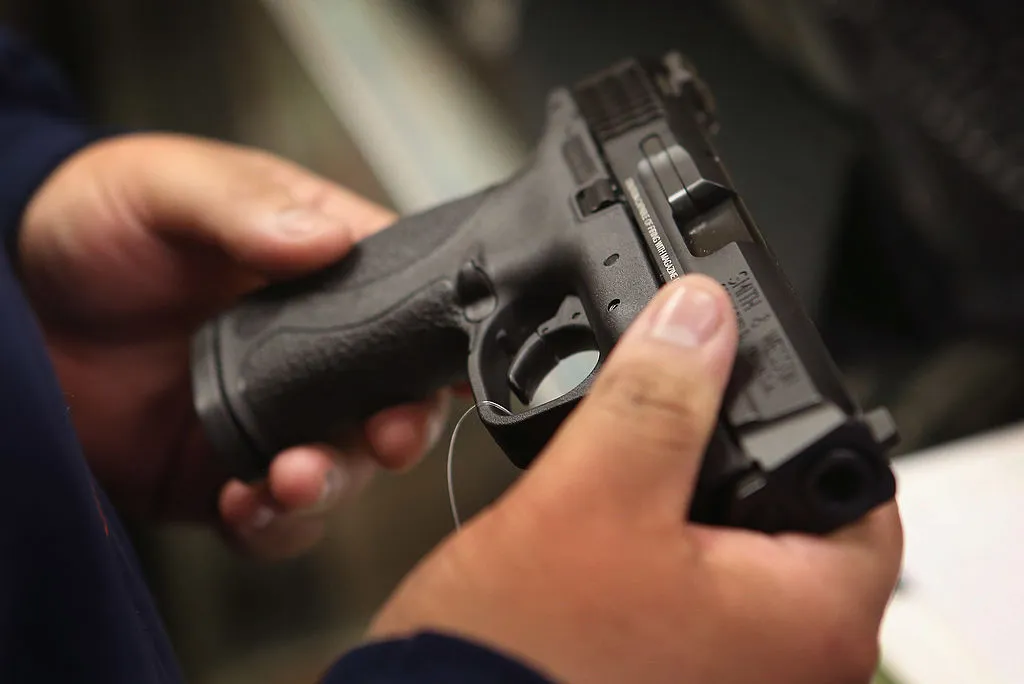

The 3-day wait period to buy guns in Colorado has been a topic of discussion and debate for years, with varying opinions on its necessity and effectiveness.
Whether you’re a concerned citizen, a gun owner, or simply curious about this gun legislation, this article will provide you with a comprehensive understanding of the 3-day wait period in Colorado.
Background Checks and Public Safety
The 3-day wait period to buy guns in CO is a crucial step in ensuring thorough background checks and promoting public safety. By implementing this waiting period, individuals seeking to purchase firearms are subject to a comprehensive background check, which helps prevent firearms from falling into the wrong hands. You can find more about Colorado gun laws here:
https://www.thelawcenterpc.com/denver-gun-rights-lawyer/
During these three days, law enforcement has the opportunity to thoroughly vet the potential buyer, ensuring they don’t have a criminal record or a history of violence. This waiting period also allows for a cooling-off period, reducing impulsive purchases that could lead to tragic consequences.
The 3-day wait period is a necessary precautionary measure, giving law enforcement the necessary time to conduct proper background checks and maintain public safety.
Purpose of the 3-Day Wait Period
Contrary to popular belief, this brief delay when purchasing firearms in Colorado serves a crucial purpose. The 3-day wait period allows for a thorough background check on potential buyers. This extra time ensures that individuals with a history of violence or mental health issues aren’t able to obtain a firearm quickly.
It is a preventive measure that aims to prioritize public safety. During this waiting period, law enforcement agencies can thoroughly investigate the buyer’s background and determine if any red flags would make them ineligible to purchase a gun. This process helps to prevent impulsive and potentially dangerous individuals from obtaining firearms, reducing the risk of gun-related crimes and tragedies.
Second Amendment Rights and Gun Control
Despite the ongoing debate, it’s important to understand how Second Amendment rights and gun control intersect to have a well-informed discussion.
The Second Amendment of the United States Constitution guarantees the right of individuals to keep and bear arms. However, this right is not absolute and can be subject to reasonable regulation.
Gun control measures, such as the 3-day wait period to buy guns in Colorado, are implemented to ensure safety and prevent impulsive acts of violence. By requiring a waiting period, individuals have time to undergo background checks and mental health evaluations, reducing the risk of firearms falling into the wrong hands.
This measure aims to balance the rights of gun owners with the need for public safety, providing a reasonable compromise in the ongoing debate over gun control.
Impulsive Acts of Violence and Prevention Measures
Impulsive acts of violence can have devastating consequences, which is why it’s necessary to implement effective prevention measures.
The 3-day wait period to buy guns in Colorado is one such measure that aims to reduce impulsive acts of violence. This waiting period allows for a thorough background check to be conducted on potential buyers, which can help identify individuals with a history of violence or mental health issues. It provides a critical buffer that can help prevent impulsive acts of violence and potentially save lives in the process.
By imposing this waiting period, it gives law enforcement officials more time to gather information and make informed decisions regarding gun sales. This measure is not meant to infringe on Second Amendment rights but rather to ensure that guns do not fall into the wrong hands.
Controversies Surrounding the 3-Day Wait Period
Some argue that this waiting period infringes on their Second Amendment rights, claiming that it unjustly restricts law-abiding citizens from acquiring guns for self-defense. They argue that if someone needs to purchase a firearm, they should be able to do so without delay.
On the other hand, proponents of the wait period argue that it is a crucial safety measure. They believe that the waiting period allows for a thorough background check to be conducted, which helps prevent individuals with criminal records or mental health issues from obtaining firearms easily. They argue that this delay can potentially save lives by preventing impulsive acts of violence.
Despite the controversies, the 3-day wait period remains in place in Colorado.
Conclusion
Now you understand what the 3-day wait period to buy guns in Colorado means. It is a measure implemented to ensure background checks and public safety.
While it may be seen as a restriction on Second Amendment rights, it is also a preventive measure against impulsive acts of violence. However, controversies surrounding this waiting period continue to exist.
It’s up to society to strike a balance between gun control and individual rights to ensure a safer community.
-



 Biography5 years ago
Biography5 years agoJacqulyn Elizabeth Hanley is the Mother of Liza Soberano?
-



 Home4 years ago
Home4 years agoEpson L3110 Driver Free Download Latest Updated Version
-



 Games3 years ago
Games3 years agoBest Free To Play MMORPG To Try This 2021
-



 Biography5 years ago
Biography5 years agoAmanda Levy Mckeehan Biography, Family, Net Worth, Age, Affairs, Facts
-



 Biography5 years ago
Biography5 years agoWho is Rose Dorothy Dauriac? Scarlett Johansson Daughter?
-



 Biography5 years ago
Biography5 years agoJessica Ditzel Secret Information that Nobody Knows | Joe Rogan’s Wife
-



 Biography5 years ago
Biography5 years agoWhat is the relation of Nathaniel Larry Osorno with Liza Soberano?
-



 Home5 years ago
Home5 years agoLiza Soberano Biography, Age, Family and Boyfriends



